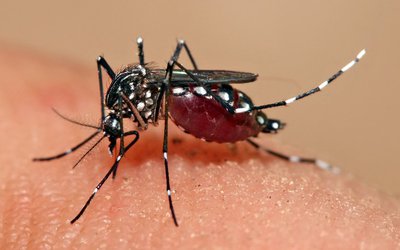
"The chronic global shortage of personal protective equipment is now one of the most urgent threats to our collective ability to save lives," WHO chief Tedros Adhanom Ghebreyesus told a virtual news conference in Geneva on Friday.
"WHO has shipped almost 2M individual items of protective gear to 74 countries that need it most & we’re preparing to send a similar amount to a further 60 countries.
Tedros said the WHO had shipped almost two million individual items of personal protective equipment (PPE) to 74 countries and was preparing to send a similar amount to a further 60 countries.
"This problem can only be solved with international cooperation and solidarity," said Tedros. He said he had urged the G20 countries to use their "industrial might and innovation" to produce and distribute the tools needed to save more lives.
"We must also make a promise to future generations, saying: 'never again'," Tedros added. The coronavirus pandemic has infected more than half a million people and killed over 25,000 worldwide, since the outbreak was first reported in Wuhan, China, in December.
"We're only at the beginning of this fight. We need to stay calm, stay united and work together," Tedros said.
"These are tragic numbers. But let's also remember that around the world, more than 100,000 people have recovered, he added.
Drug trials
While developing a vaccine will take at least 18 months, Tedros announced that Norway and Spain were starting drug trials on Friday.
They are part of a 45-country WHO study that tests whether the COVID-19 viral disease can be treated with medications that were developed for HIV and malaria patients.
While the trials are under way, the WHO chief warned against using any of the existing drugs on COVID-19 patients.
"The history of medicine is strewn with examples of drugs that worked on paper, or in a test tube, but didn't work in humans or were actually harmful," Tedros said.
"We must follow the evidence. There are no shortcuts," he added.
Source: Aljazeera
- Weather Forecast: Partly Cloudy With Brief Rain Is Likely In Kathmandu, Pokhara And Biratnagar
- May 13, 2025
- IME Group’s Ila Hotel Opens in Maulakali, Gaindakot
- May 12, 2025
- Markets rise worldwide after breakthrough in US-China trade talks
- May 12, 2025
- India and Pakistan Averted War After We held discussions: Prime Minister Oli
- May 12, 2025
- IME Group's investment in Maulakali, Nawalpur's Ila Hotel to be launched
- May 12, 2025
















